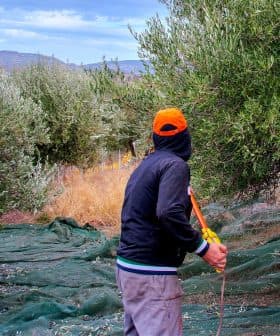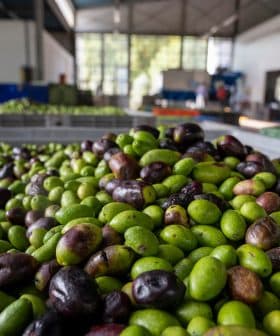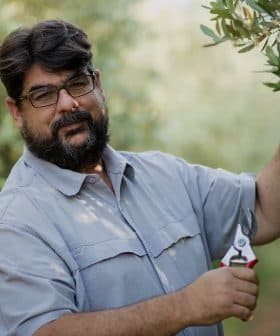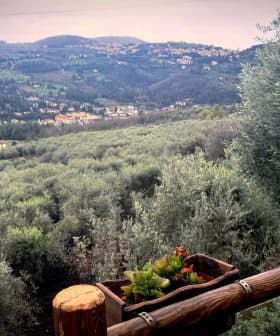Italy Set to Invest €100M for Olive Mill Upgrades
Starting in 2026, funds will be dispersed to millers across the country to upgrade equipment and technologies.
 (Photos: Lucia Mangialasche)
(Photos: Lucia Mangialasche) Italian olive mills are set to receive significant upgrades through a €100 million public funding initiative. The upgrades aim to enhance product quality, sustainability, and innovation in olive oil production across the country, with particular focus on regions such as Umbria and Tuscany.
Across Italy, olive mills are set to receive investment for significant upgrades. After completing a qualifying process that began this summer, producers across the country will start receiving the funds in May 2026.
To produce quality, you need to research and invest and, as a milling company, be part of the change in your territory.
“Successful milling operations do not only depend on new technologies applied to the milling process, they need to be part of a cultural approach which puts quality and sustainability at its core,” Lucia Mangialasche, co-owner of Frantoio Il Nocciolino in the central Italian region of Umbria, told Olive Oil Times.
“To produce quality, you need to research and invest and, as a milling company, be part of the change in your territory,” she added.
Il Nocciolino is a fairly new olive milling company. Its creative approach to innovation is part of a broader transition of many Umbrian olive oil producers, including small ones.
See Also:How Olives are Processed into OilOne of their customers, Cultura Viva, won its second-consecutive Gold Award at the 2023 NYIOOC World Olive Oil Competition.
The €100 million of public funding provided by the Italian Recovery and Resilience Plan for milling innovation comes from the broader €750 billion European Union initiative known as “Next Generation E.U.”
In Umbria, €3.7 million will be used to sustain milling innovation. Meanwhile, €8.3 million will be invested in neighboring Tuscany, a region renowned for its high-quality extra virgin olive oils.
About half of those funds will reach companies in southern Italy, where most of the country’s olive oil production occurs. In Puglia, millers will share €27 million, with their Calabrian and Sicilian counterparts receiving €16.5 million and €13 million, respectively.
Still, upgrading olive oil mill technologies means more than deploying new extraction processes.
“As graduated agrarian experts, we focused on innovation from the start of operations in 2011. Our vision was not always fully supported by local farmers,” Mangialasche said.
Olive oil production in regions such as Umbria comes from a long tradition and is part of the local identity.
“In the beginning, many small producers, often aiming to produce olive oil for self-consumption, did not share our enthusiasm for the new frontier of making olive oil,” Mangialasche said.
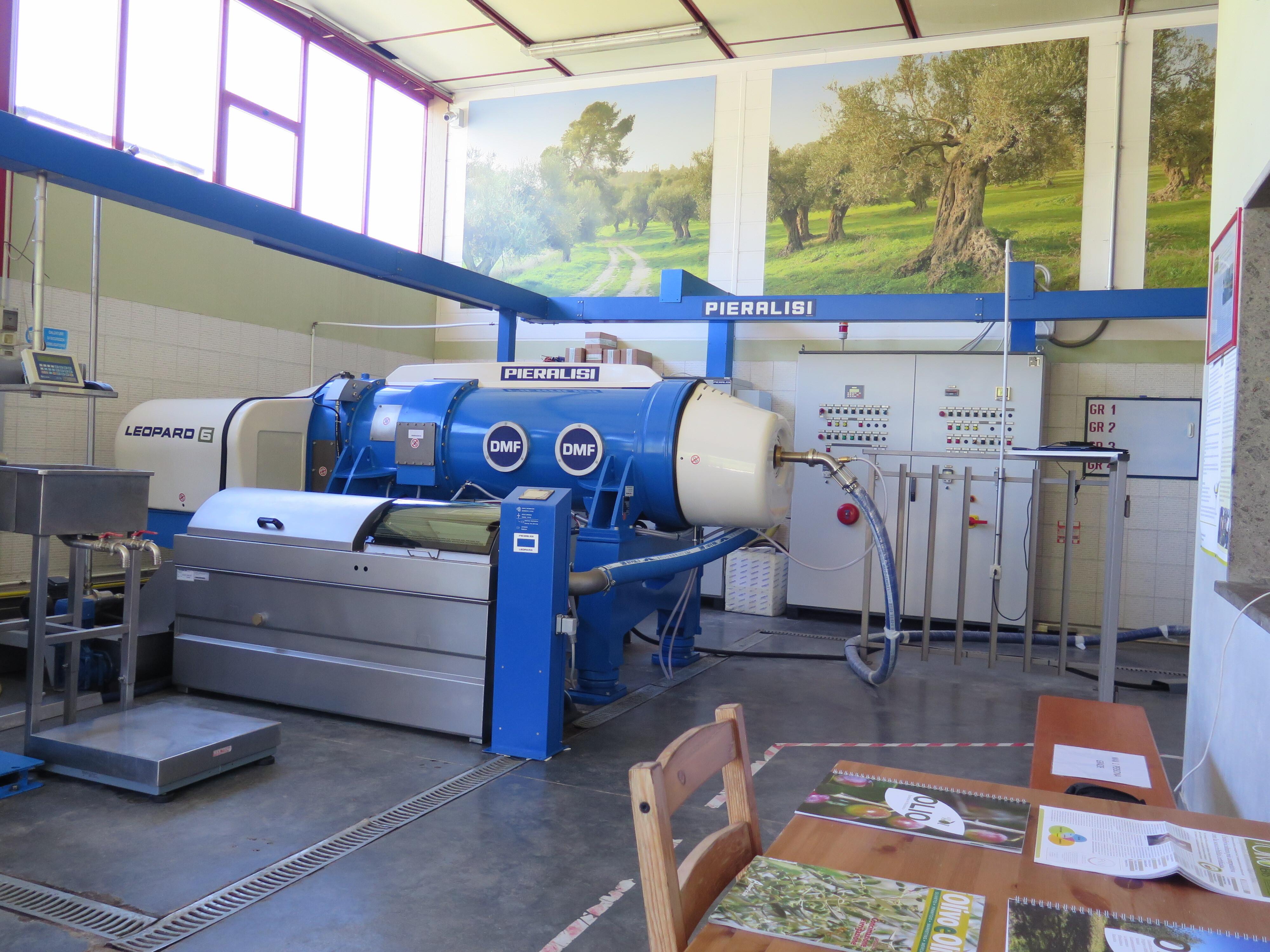
In a bid to improve productivity and sustainability, Italy is investing €100 million in the country’s olive mills.
“They even protested against it, as they were used to olives processed at higher temperatures with traditional crushing means; they were used to a plain olive oil which was always the same across the years, devoid of any strong flavor,” she added.
“Intense taste, the bitter and the piquant notes, were seen by some producers as intrusive; they were not understood at first,” Mangialasche continued.
While most millers have abandoned stone grinders and old-fashioned presses in the last few decades, the new funds aim to install state-of-the-art technologies to boost product quality and a circular economy.
Public funding will sustain 40 to 50 percent of the investment needed to upgrade older machinery.
Current crushing equipment is expected to be replaced with rotary disks and blade crushing equipment to enhance the processing speed and the product’s final quality.
Advanced kneaders capable of minimizing the presence of oxygen in the process and keeping temperatures down will be funded. This equipment reduces oxidation while maximizing the amount of antioxidants in the final product.
Other funding will go to installing decanters capable of separating the different parts of the fruits in a single process. This is a crucial step for enhancing extra virgin olive oil’s phenolic content and enabling the correct management of production byproducts.
While promoting the two-phase mills, funds will also go to the most modern versions of the three-phase milling processes.
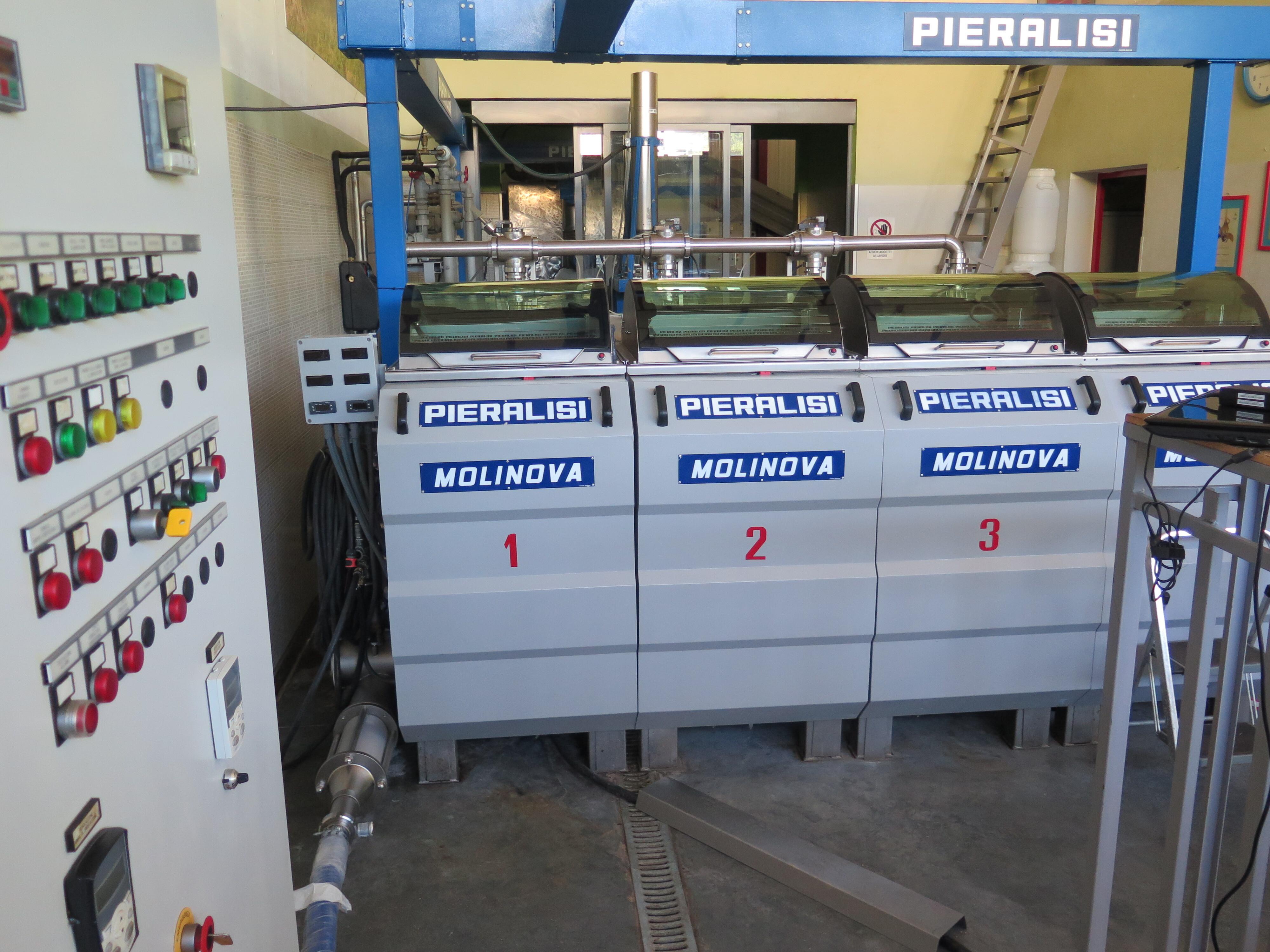
State-of-the-art technology reduces oxidation and keeps temperatures low to preserve extra virgin olive oil’s phenolic compounds.
“Three phases were the default 10 years ago, but it requires adding warm water to the process, which negatively impacts extra virgin olive oil quality,” Mangialasche said. “Warm water washes away those phenols and antioxidants which are the sources of piquant and bitterness, which is why many are used to plain olive oils.”
“That process also produces pomace and waste water which require further processing and might impact the environment,” she added.
Mangialasche noted how modern two-phase extractors can reduce waste to zero. In processes where no warm water is added, extra virgin olive oil quality is enhanced, and bio-digesters transform the remains into material for energy production, cosmetics, animal feed and more.
“One of the custom additions they introduced in their mill, such as the ultrasound technology, has attracted our attention and became one of the reasons we chose to work with them,” Stefano Zenezini, co-owner of Cultura Viva, told Olive Oil Times in a June interview.
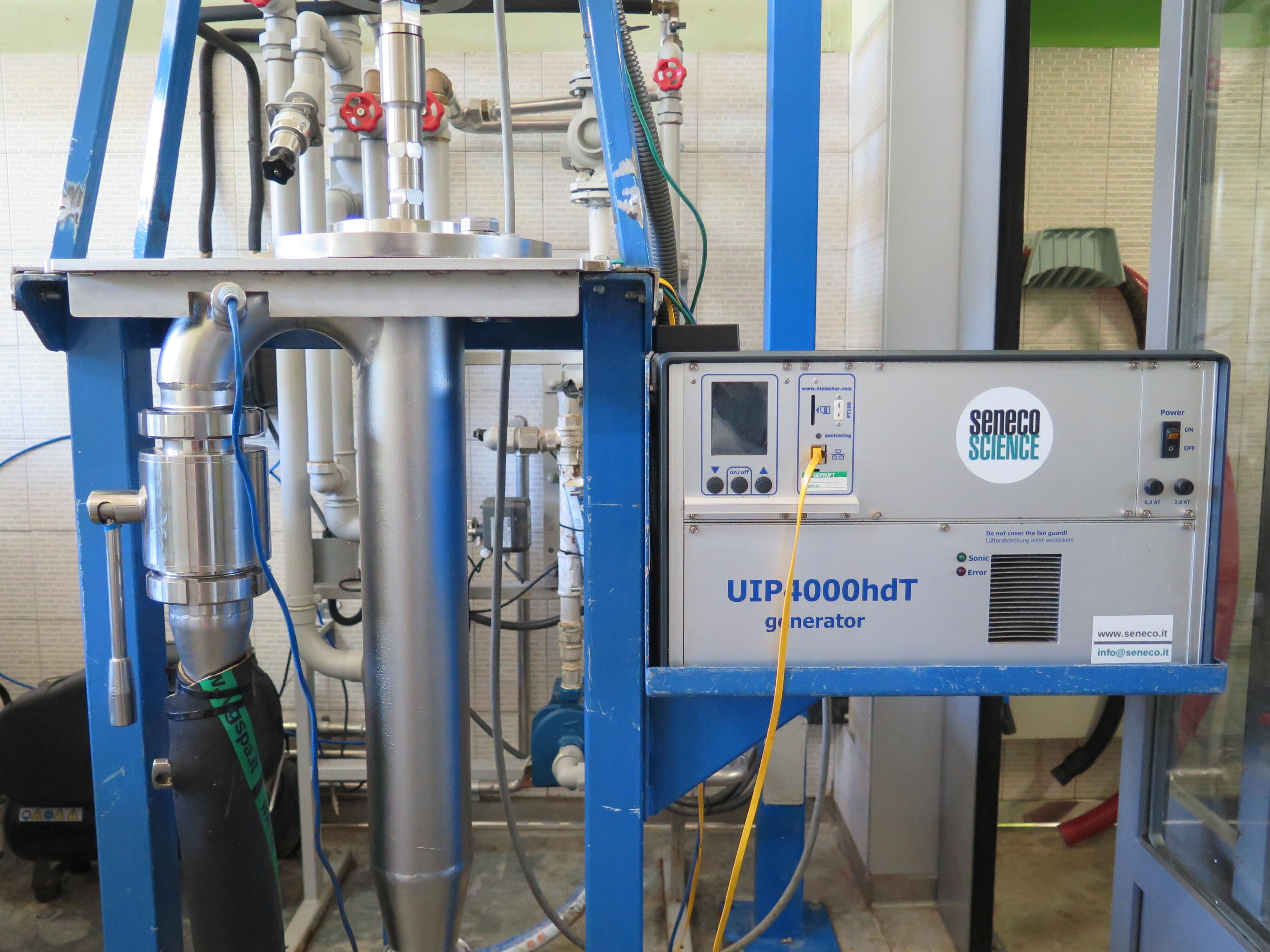
Il Nocciolino’s ultrasound generator reduces the amount of time required for the kneading process.
Il Nocciolino deployed the technology – tested by researchers from the University of Perugia – in 2017, a first for extra virgin olive oil production, according to Mangialasche.
“That ultrasound technology uses microscopic and mechanic action to instantly do what a traditional kneading process might take dozens of minutes to finish,” Mangialasche said.
A traditional kneader is a tank whose blades slowly stir the olive paste at a set temperature. The process breaks up the water-oil emulsions created by crushing the olives. This generates more significant drops of olive oil separate from the water and fruit.
“When the ultrasound technology we implemented is used, kneaders mostly serve as a means to pass the paste to the decanter,” Mangialasche said.
By significantly reducing operating times and temperatures and minimizing the contact of the olive paste with oxygen, mills using ultrasound technology are believed to significantly enhance extra virgin olive oil’s healthy components and flavors.
Ultrasound technology, like the other parts of the milling process, represents an option available to customers, depending on their needs and specifications.
“Ultrasound might greatly help to mill early harvested olives, as it helps to increase the final yield. The ultrasound apparatus might even be turned off with fully ripened olives,” Mangialasche said.
“Traditional kneading is therefore still an option, as adapting to different goals, different olives and customers, all of that is relevant in the search for milling quality,” she added.
While technology is crucial, extra virgin olive oil quality also depends on the olive harvesting procedures and the correct processing times.
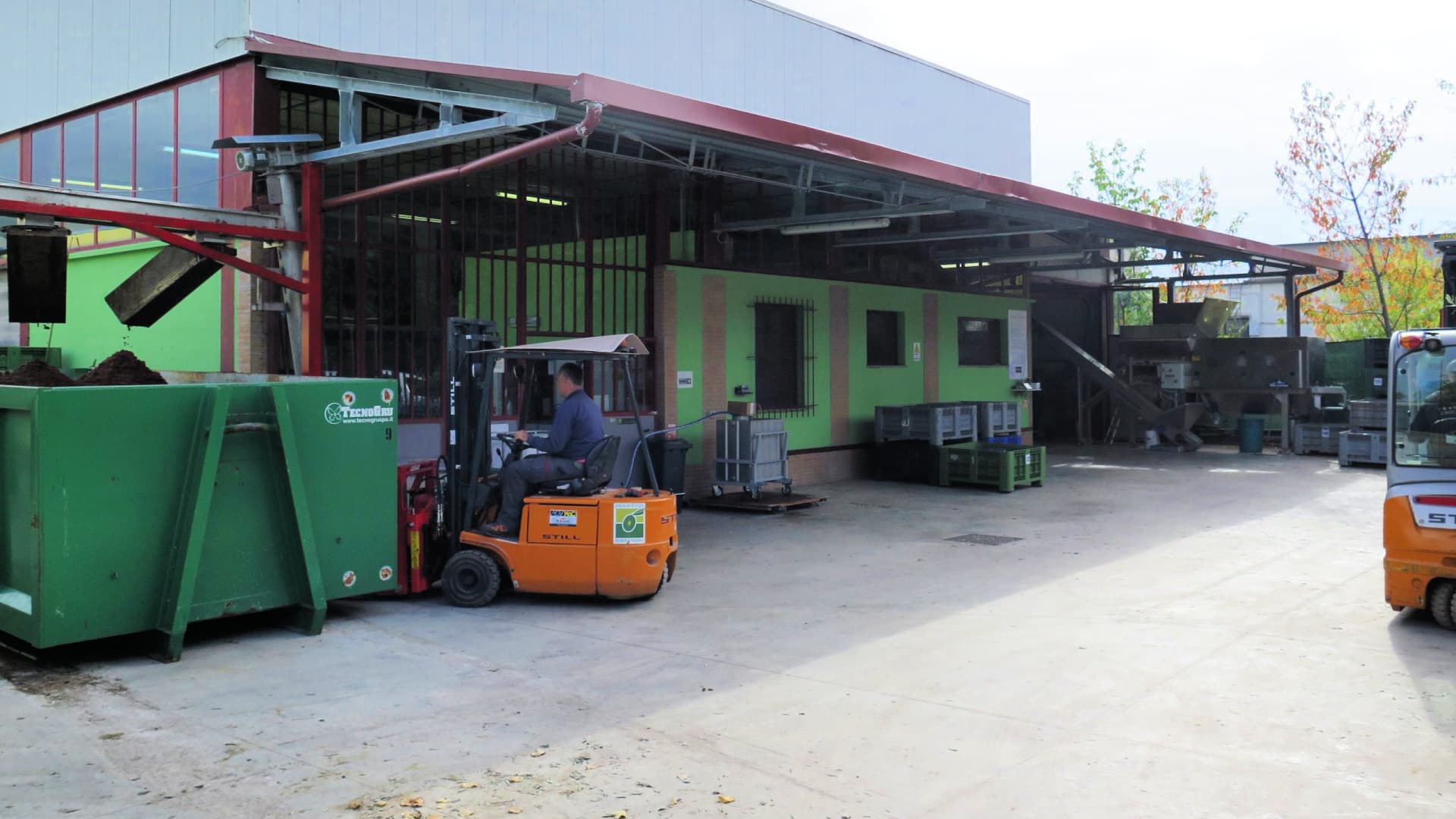
Along with upgrading technology, logistics is a cruciual part of the milling process.
“The quicker, the better. As we work for third parties, we carefully plan our schedule to ensure our customers quick, swift operations,” Mangialasche said. “Proper scheduling is probably the most significant step that results in a quality product in a cutting-edge mill plant. You have to accommodate large quantities as well as smaller ones.”
“Volumes vary, depending on the season, how fruitful it was, or by the customers, whether they intend to process each different cultivar’s fruits in singular batches, which also means different processing times, different settings and so forth,” she added.
A circular economy approach that aims to reuse waste and the deployment of greener energy sources for the olive oil mills is at the core of the new public funding round.
“Olive oil is an Italian flagship production that must be defended and supported at all levels. Innovation in olive oil is crucial to the further enhancement of product quality and to the reduction of the environmental impact,” said Agriculture Minister Francesco Lollobrigida while announcing the funding.
Share this article


